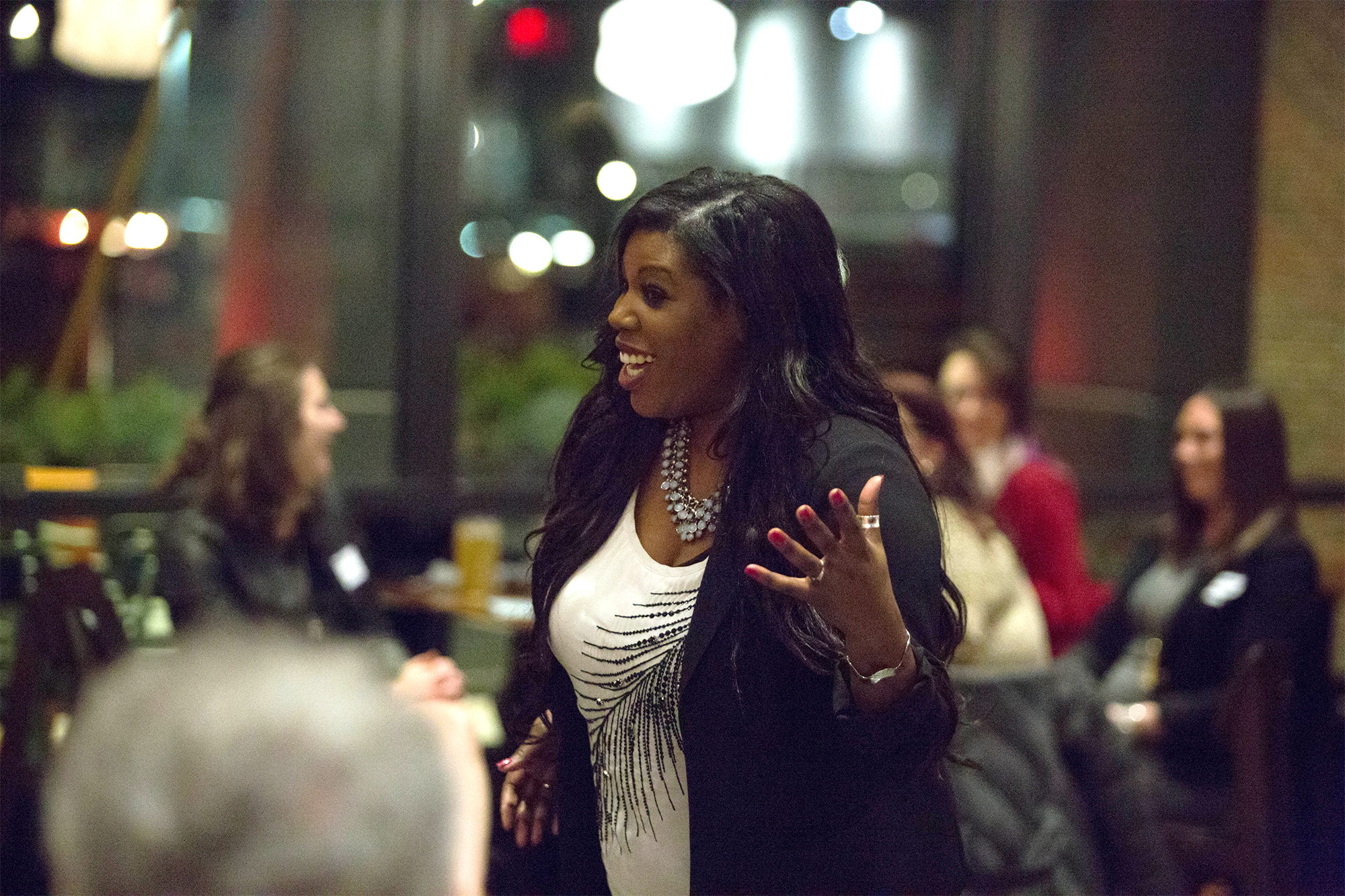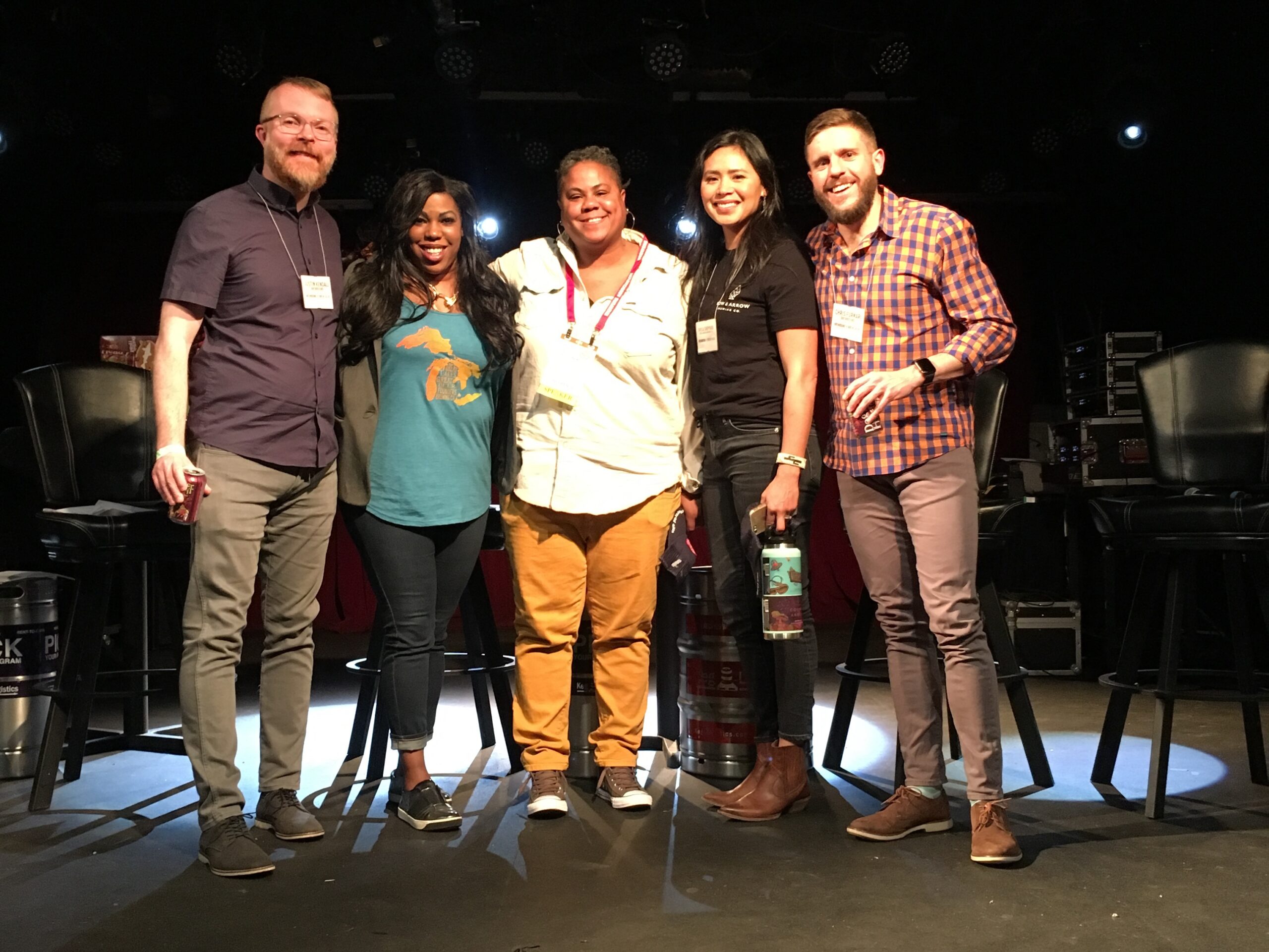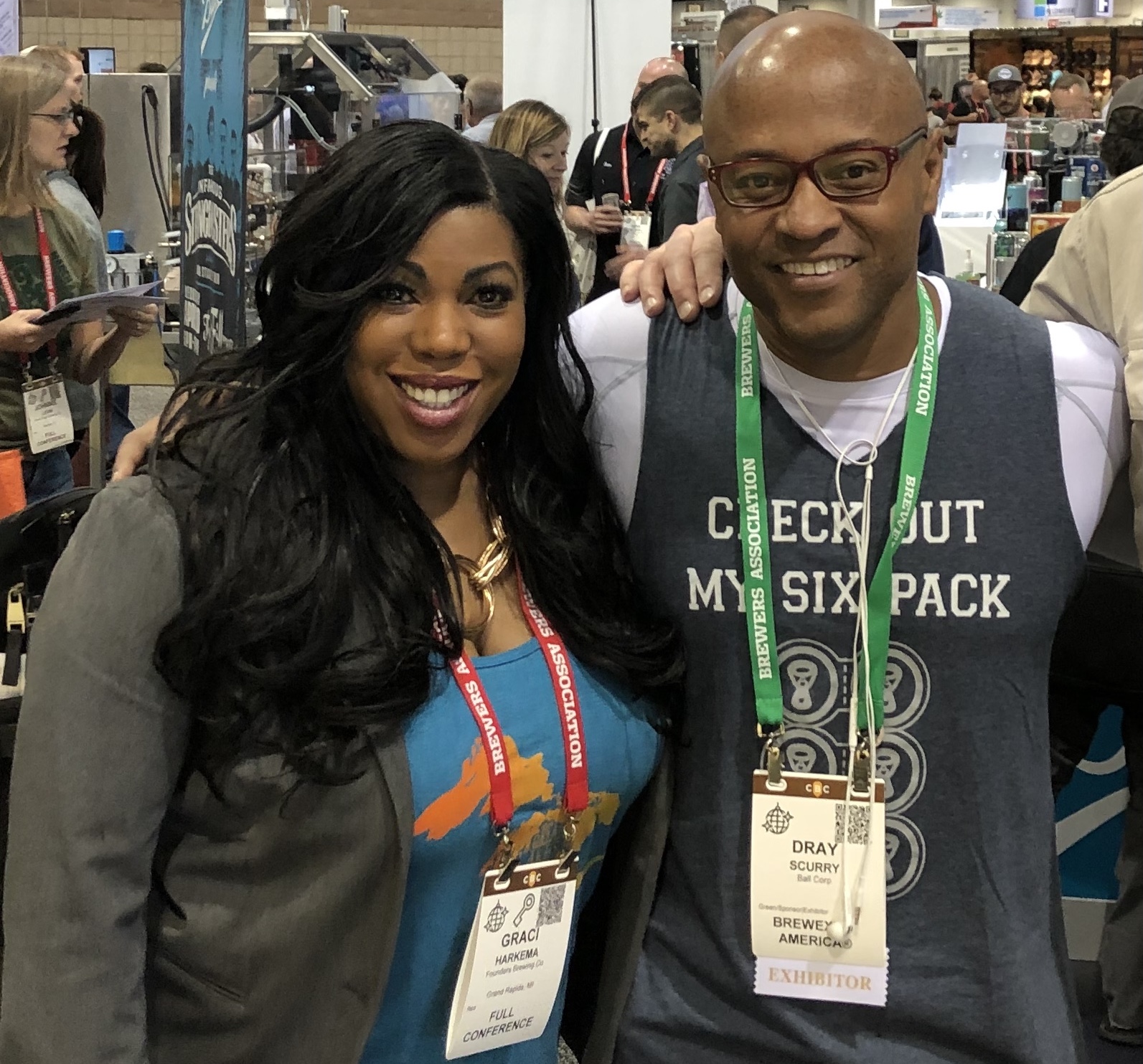Graci Harkema of Graci LLC on DEI in the Craft Industry
It’s never too late to begin the journey towards a diverse, equitable, and inclusive workplace. Wherever you are in the process, that next step can and should be taken now. That’s advice straight from the inimitable Graci Harkema, owner of Graci LLC, a diversity, equity and inclusion (DEI) firm. She’s a consultant, a trainer and …
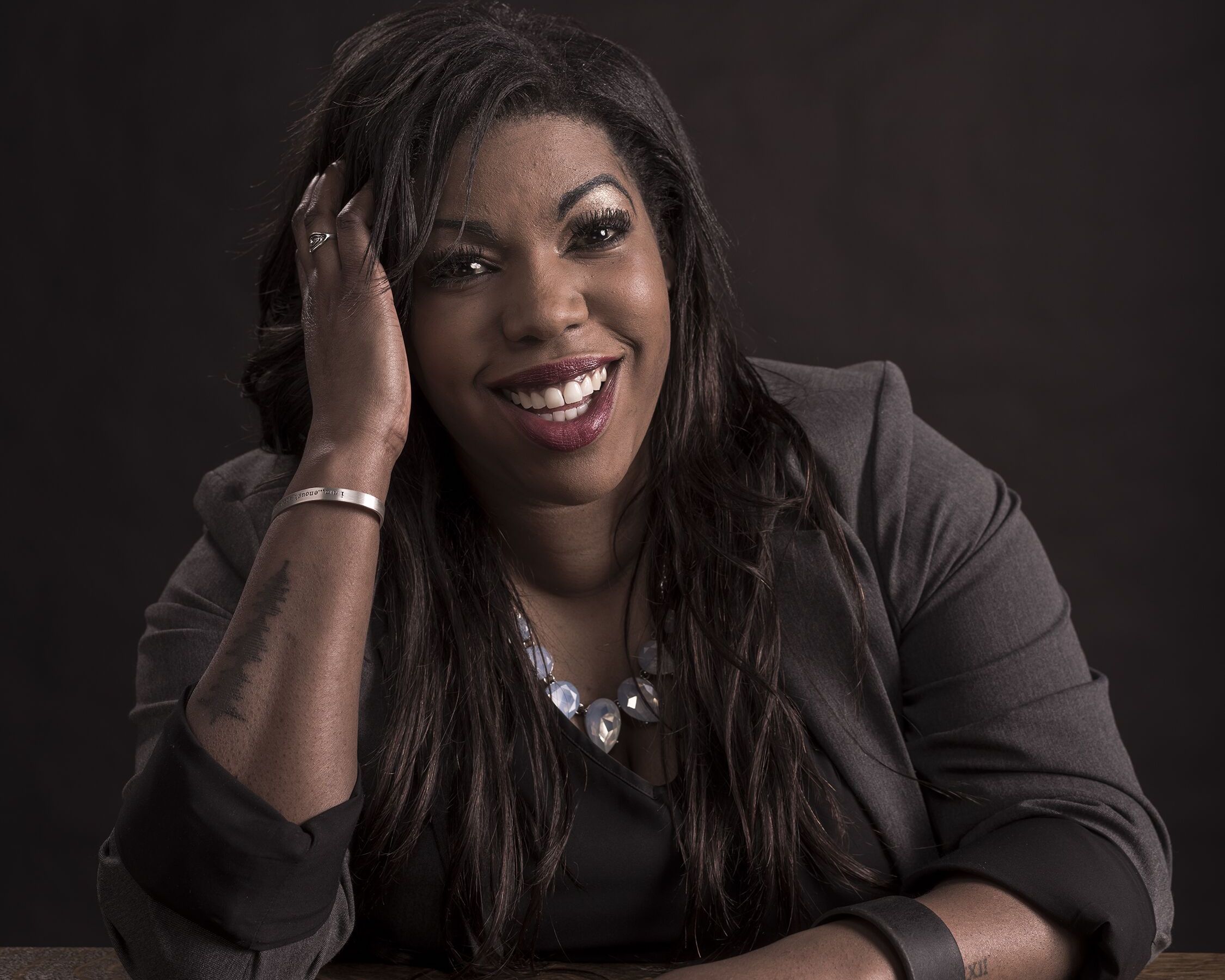
It’s never too late to begin the journey towards a diverse, equitable, and inclusive workplace. Wherever you are in the process, that next step can and should be taken now.
That’s advice straight from the inimitable Graci Harkema, owner of Graci LLC, a diversity, equity and inclusion (DEI) firm. She’s a consultant, a trainer and a speaker, but most of all she’s authentic. That’s how she lives her life, and that’s how she approaches her work.
But it wasn’t always that way.
Graci’s Story: Authentically Showing Up
Graci’s path to speaking and training on unconscious bias and belonging within the workplace stems from her own personal experiences, particularly her feeling like she didn’t belong.
“I was born in a mud hut in the Democratic Republic of the Congo in the midst of a lot of violent circumstances,” she begins. “I was adopted and moved to the United States when I was about 4. And even though I was adopted into a wonderful family, I ended up in a homogenous area where I didn’t feel I had anyone to connect with. I didn’t fit in.”
Graci’s first watershed moment came 10 years into her career, when she realized she had an employer who focused on building an equitable and safe environment. There, she revealed a secret she’d kept for some time, one she’d kept for fear of feeling different.
“My boss leveraged all strengths and all identities and created a space for me to reach my full potential,” she explains. “It was then that I felt I could express my secret: that I identify in the LGBTQ community. It was at that company, and in that HR role, that I became my authentic self and realized my true calling was in DEI.
“Think about it: Until then, I was showing up at work to others’ expectations, so I wasn’t living as myself or showing up as who I was supposed to be,” Graci adds. “That limited my potential, upward mobility, communication and teamwork.”
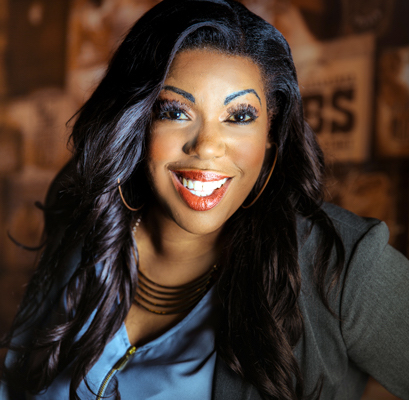
Graci Harkema of Graci LLC. Photo by Terry Johnston.
When she was finally able to show up authentically as herself, she realized that she wanted everyone else to have that opportunity, as well. She wanted to partner with organizations in the same way her company partnered with her, and to provide their employees with the opportunities and tools to equip them to show up as their authentic selves, so they could reach their full potential.
“Stronger inclusion in the workplace means stronger communication, collaboration and teamwork; that leads to increased productivity and sales, a better bottom line, and more value to customers,” Graci says.
Representation in the Craft Industry
Graci left HR in the tech industry for the craft beer industry because she saw parallels; she saw disparities, as amazing talents were overlooked, and certain demographics were underrepresented.
“I transitioned to the brewing industry to make a difference, to equip breweries with the tools to create a more diverse workforce, and a more diverse consumer base,” she explains. “Why consumers? We’ll increase sales when we stop branding beer to just white men with beards. When we brand to a broader audience, we have access and connection to that broader audience.”
Graci Harkema hosting a DEI workshop. Photo courtesy of Graci Harkema.
DEI + Justice is Everything
In the craft space, many owners are managing a small business, but Graci is emphatic that no matter the size, the DEI conversation is important and relevant. She says the first step—always—is acknowledging and recognizing the importance of DEI in the workplace. And, that prioritization needs to come from the top.
Graci is more than able to define DEI, but it’s the addition of “justice” that’s telling. She says that diversity is everything that encompasses us: diversity of thought, background, skills and experiences.
“Diversity is everything we bring to the table,” she notes.
Inclusion means that we have a seat and a voice at the table. If our environment doesn’t have inclusion, then we’re not being valued for who we are and what we bring to the table, and in that case, diversity doesn’t matter.
“We need inclusion first to ensure that people are valued, seen and heard,” Graci says.
Equity means ensuring that we’re providing the right resources and opportunities to those who need it. It doesn’t mean everyone will get exactly the same thing, because not everyone needs the same support.
“We need to have access to reach our full potential,” she adds. “That access is where equity comes in.”
And then there’s justice, the accountability that all those things have happened. Justice is ensuring that we’re providing the right tools and seats at the table, and that everyone is being seen, valued and heard.
Lessons for the Craft Industry
Graci is quick to point out two common misconceptions:
FIRST
These topics “aren’t like affirmative action, or saying ‘we need to hire a black person because we don’t have any black people.’ No, if we don’t have any black people or a certain demographic, then we need to intentionally build relationships with those demographics, so when a new position opens, we’ve already built a pipeline to those folks. It’s not just a check in the box. When we have intentionality behind the work and a diverse candidate pool, then we’re going to organically have the right people on our teams,” she says.
SECOND
There shouldn’t be a settling on the quality of talent to fill a certain position. Breweries should seek to hire the most qualified talent, and it’s the owner’s or manager’s job to ensure that they’re looking in all the right places, not just calling their friends to ask if they have a friend to work at the brewery. There needs to be intentionality to have diverse pools to draw talent from.
Infusing Breweries with DEI
“You don’t need a big budget for a diversity team—you just need equitable practices. What you need to have is the lens, the representation,” she says. “If there’s not currently representation within the four walls, then rely on resources like community organizations, especially those that focus on the underrepresented population, so you can organically and intentionally build those relationships, not just for a hiring pipeline but also as sounding boards.
“If you’re in a room and everyone looks like the person next to them, then you need to not make a decision until there’s adequate representation. What’s powerful and beautiful is that when you collaborate with other voices who have different experiences, backgrounds and perspectives—those who can see what you don’t see—when you join together, then you’re going to be much stronger for it. You always have the ability to do the right thing, even as a small business.”
Graci Harkema after the 2019 Brewbound Diversity and Inclusion in Brewing Panel. Photo courtesy of Graci Harkema.
DEI Conversations are Powerful
A pitfall of poor representation is that companies make decisions with blinders on, and those decisions could result in awkward and negative consequences—even lawsuits. Graci notes, for example, the risk of coming up with a beer name, label and brand that could be offensive to others. Those negative outcomes can be avoided when the right people have the conversations—people who could have caught it.
“Instead, you’re doing extra work and backtracking, instead of celebrating the launch and productivity and sales,” she adds.
How Craft Beverage Can Make a Difference
The craft beverage industry is already focusing on diversifying the consumer, so it follows that a focus on a diverse audience drinking the products should lead to the same mindset for internal structures. Graci has worked with, and currently is working with, breweries that are starting to do the work required to be diverse, equitable and inclusive.
“What we’ve seen in craft beer is that most breweries started with someone homebrewing, typically a male who was passionate about it, who then called his buddy to help him, got bigger, asked another friend… It was guys who loved beer who kept asking friends like them as they tried to sell a product to other people who are not like them,” Graci says.
“If we want to grow sales and the bottom line, we need to start at the top to ensure the right people are at the table, not just people like the one sitting next to us. If we’re trying to sell to a specific demographic then we need to make sure we have representation in our business.”
Graci cites great work by breweries in the Pacific Northwest that are engaging in collaborations with nonprofits and organizations in underrepresented communities, and not only doing a kickback to those organizations, but also using their own platforms to leverage them. She acknowledges that dollars are a great way to support, but argues that breweries using a promotional platform like social media is just as valuable, because it helps to empower others.
“We don’t have to tiptoe around the issue,” Graci says. “Be real, call it like it is. That authenticity will show through and help other communities gravitate to partner with you. One Oregon brewery created a diversity internship and put right in the job description that it was seeking underrepresented talent. That’s acknowledging they want to do better.”
Graci Harkema at the 2019 CBC. Photo courtesy of Graci Harkema.
Next Steps to DEI
Graci recommends the following steps to get started:
REFLECTION
As a leader, do a deep reflection within yourself so you understand what you want and why this matters to you. “If you keep that at your center, then you won’t be derailed, or perceived as tokenizing or discriminatory,” she explains.
OPEN YOUR CIRCLE
Ensure that you have people in your corner that you’re aligned with who can provide you with a diverse viewpoint—inside or outside the organization. The work shouldn’t fall on one person’s shoulders. “What’s important and beautiful is that DEI thrives on diversity of perspectives and backgrounds and viewpoints,” Graci adds.
CONTINUE TO LEARN
Educate yourself! Graci, who is writing her own book and licensing and digitizing her DEI trainings (due by 2022), recommends two easy reads by Jennifer Brown: Inclusion: Diversity, the New Workplace & the Will to Change and How to be an Inclusive Leader: Your Role in Creating Cultures of Belonging Where Everyone Can Thrive.
“These touch on why it’s important, and the strength of vulnerability and equity,” she says.
BUILD A TEAM
Hire someone to do the work, if possible. If not, create a committee, and welcome volunteers to collaborate, brainstorm and idea dump.
“You shouldn’t be in a silo, alone.
“This is important: Tackle it one chunk at a time. If your priority is hiring, then focus on how to build relationships with more diverse groups. If it’s retention, then focus on programs and training with current employees to equip them to reach their full potential. If it’s sales and branding, then partner with relevant communities,” she adds. “Say you develop a new seltzer with a flavor profile that’s gone over well with black and brown communities—look for ways to partner with those communities.”
PREPARE TO WORK
By focusing on one chunk, one priority, one goal at a time, Graci says that the work will no longer feel overwhelming and daunting. She reminds us that it’s not a race, but a continuous journey that could take years, as you move from one priority to the next. If you’re doing the work, then that’s what matters.
“Be genuine about this, and that it is work,” she emphasizes. “It’s continuous, never a check in the box. Not that ‘we did this and we’re done; we hired a diversity director and we’re fine.’ We need to have continuous accountability, checks and balances, and make sure that we partner with others who are aligned with us to see outside our own scope.
LIVE AUTHENTICALLY
“Changing the culture in our breweries, companies and organizations will never work when done in a disingenuous way, because it’s trendy or to avoid a lawsuit,” she added. “People will see through that, especially craft drinkers who are very smart and who care. They care about the product, do research on the backend, and understand where their dollars are going. If that’s not in alignment with their beliefs, then there could be an uproar.
“But guess what? We’re human. If we mess up, then own it and acknowledge it, take responsibility and state what we’ll do moving forward—not sweep it under the rug and think it’s going to disappear. It’ll keep resurfacing, and then you’re chasing the tail instead of running the race.”
DEI is a marathon, not a sprint. Are you ready to get into the race and create an informed and thoughtful DEI focus in your business? Visit Graci Harkema’s website for more information about DEI topics and resources, and follow her on Instagram @thegraciharkema.
If you’re looking for more inspiration from the craft industry, read these 8 Inspirational Stories. It won’t disappoint.

